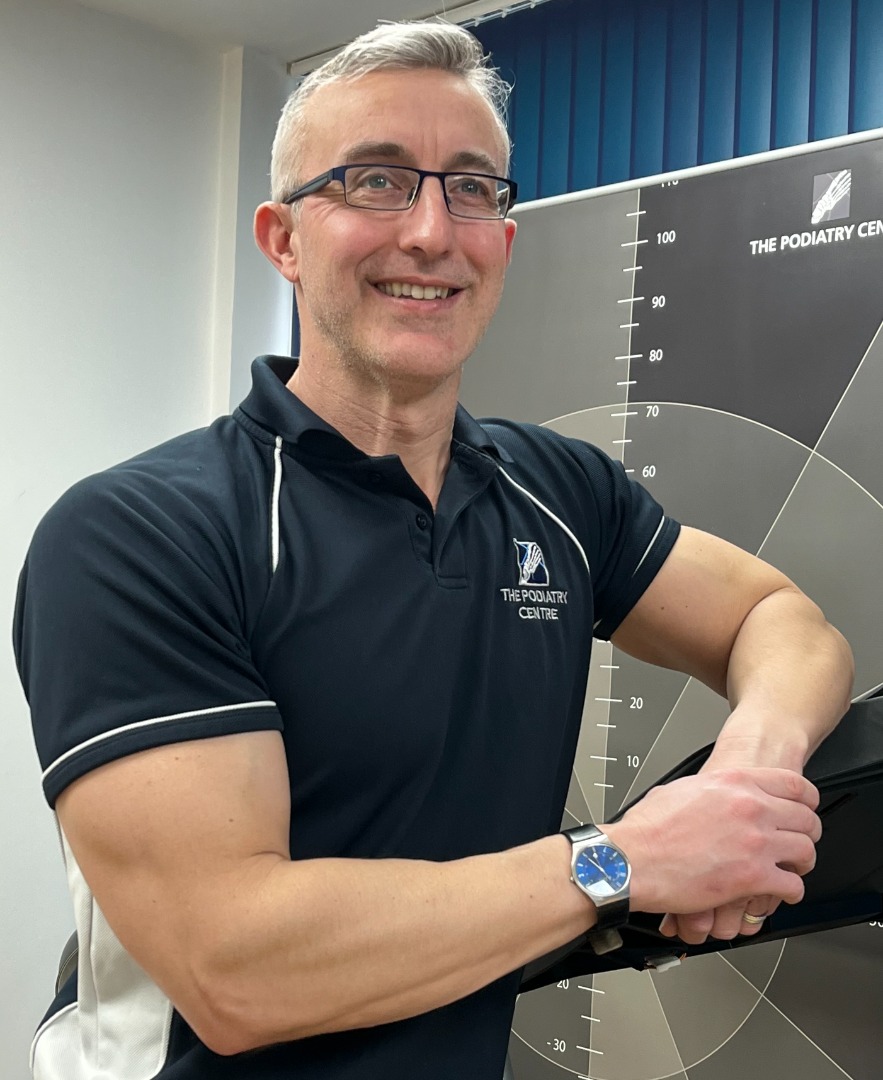
Dr Paul Harradine PhD MSc BSc (Hons) CertEd
Independent podiatrist
Case study
Paul Harradine: independent podiatrist
My PhD career journey as a podiatrist in independent practice
‘My PhD has given me much more than the title’
I qualified in 1994 from the Northampton School of Podiatry. Looking back, my lecturers’ positive attitude towards continuing education and professional development influenced me greatly. Steve Avil was completing a diploma in Sports Medicine (a very rare thing for a podiatrist at that time) and Tim Kilmartin was finishing his fellowship and PhD. Both shared their enthusiasm openly with students, and I saw no reason why my degree was the end. If lecturers carried on researching and learning, then why wouldn’t we all?
Between 1994 and 2000 I obtained an MSc and a CertEd and spent a short three years lecturing undergraduate podiatry combined with an NHS clinical post. I worked long clinical hours (sometimes over 60 hours a week) combining full-time NHS with building a private practice, before becoming a full-time independent practitioner in 2005. From 2001 family life slowly took over, and I was blessed with five amazing sons over the next nine years.
I continued with small research projects and with theoretical peer review publications, squeezed in between family and clinical responsibilities. I lectured frequently on gait analysis and started to form a larger and more complex question: Was it possible to develop a real-time clinical gait analysis best practice approach to aid in the assessment of MSK lower limb injury? Was it possible to scale or score gait dysfunction, such as the FPI-6 is used for static foot posture?
Even with a background of publications and research, I failed. My attempts were rejected for publication. Looking back now, thank goodness they were. As well as being incomplete, my work was full of bias and assumptions. It would have been a step backwards for podiatry and evidence-based practice, not forwards.
With this frustration, I reached out to colleagues at the University of Southampton, and seven years ago I began my PhD. My initial experience with contacting my academic colleagues was completely positive, and I would advise any podiatrist interested in taking the research further to follow this approach. Ask those who know.
My PhD has changed me. Not just my professional life. The process is amazing, and my supervisors are some of the most patient, hardworking, and gifted professionals I have ever met. After completing my thesis, I was often asked “What would you do differently”. I’d answer “Nothing”. Although my work had many dead ends and difficulties, I needed to go through the development process of the PhD. It is hard, but if you trust the process and enjoy learning, it is incredibly fulfilling.
I’m not sure how much I will use the title “Dr” at work, as I’m aware it is confusing for patients. My family tries to ignore my “that’s what the Doctor ordered” one-liner every time Amazon deliver to our door. My PhD has given me much more than the title. I’ve added to the research in an area where there was hardly any. I’ve helped the podiatry profession move forward a little bit towards evidence-based practice and gait analysis. It has changed how I look at all research and every element of my practice. I believe I am a better clinician due to my PhD, and for that reason alone I would recommend anybody with an interest in research and a drive to improve to go for it!
Paul says:
‘I’ve added to the research in an area where there was hardly any, and I’ve helped the podiatry profession.
‘I believe I am a better clinician due to my PhD, and for that reason alone I would recommend anybody with an interest in research and a drive to improve to go for it!’
